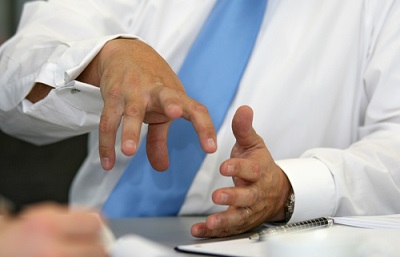 As we age, our cells get older - this is what contributes to our fine lines, crow's feet and achy joints. When our cells get older, they do not perform as well as we would hope. Most of us might be thinking of our parents and grandparents, but it is happening inside us today. Our cells are ageing. Our fertility and sex cells are no different and they will fall victim to the ticking clock of time as the rest of us will. That is all a little bit of depressing, but there is good news, I promise.
As we age, our cells get older - this is what contributes to our fine lines, crow's feet and achy joints. When our cells get older, they do not perform as well as we would hope. Most of us might be thinking of our parents and grandparents, but it is happening inside us today. Our cells are ageing. Our fertility and sex cells are no different and they will fall victim to the ticking clock of time as the rest of us will. That is all a little bit of depressing, but there is good news, I promise.This post was sparked from a recent conclusion drawn that men will have the same age-related fertility decline that we so often associate with women. New research, which has examined pre-existing research, has concluded that yes, men are susceptible to age related fertility.
Dr. Sheri Johnson, co-author of the study says; "Our study made no attempt to estimate the rate of decline, but some well-controlled clinic-based studies have observed consistent declines with increasing age, whereas others project declines after age 35 for some traits and after age 40 for others."
It certainly is a very interesting conclusion and we are constantly trying to get the topic of male fertility on the table for discussion. There can be several issues with a gentleman of advanced paternal age - low count, poor morphology, high DNA fragmentation, sluggish motility to name the more prevalent issues.

The good news is that the cells in question are a product of their environment. In general, the smoker, the heavy drinker, that person who is chronically stressed will generally 'age,' quicker than somebody who lives a clean and good lifestyle. There are exceptions. Ageing is a process we are beginning to understand, and a lot of the theories around ageing are being refined. The good news, as promised, is that we can halt this decline in our cells. The general consensus is that exercise will 'tone,' cells and keep them younger for longer. This was backed up by a study in 1999, published in Clinical Endocrinolgy. There was also improved testosterone results. Another study in 2014, eluded that lifestyle changes and antioxidants (from your brightly coloured foods, not skittles, and supplements) may help minimise some of the age-related deleterious effects on sperm, such as, oxidative stress and endocrine abnormalities.
As per usual, there is a relatively straight forward way of keeping us healthy. Good exercise, a good diet and a good lifestyle can keep us younger it appears. This will apply to the fine lines as well! There isn't a cure to ageing, yet, but there are things that have been shown to slow it down. The creation of a sperm cell is complex, with a lot of key components. When we reduce the level of substances/ issues that can impair this, we would expect to see better quality cells. A large study conducted in February, 2000 stated;
A multi-faceted therapeutic approach to improving male fertility involves identifying harmful environmental and occupational risk factors, while correcting underlying nutritional imbalances to encourage optimal sperm production and function. A number of nutritional therapies have been shown to improve sperm counts and sperm motility, including carnitine, arginine, zinc, selenium, and vitamin B-12. Numerous antioxidants have also proven beneficial in treating male infertility, such as vitamin C, vitamin E, glutathione, and coenzyme Q10.
For more information, see www.pillarhealthcare.ie for some fertility do's and don'ts.













